 Daily Express, February 9, 2017
Daily Express, February 9, 2017
You have to be careful with ‘late’ and use it only if there is a chance that readers will not know someone is dead. There can scarcely be a person on the planet who doesn’t know that The King died on August 16, 1977.
 Daily Express, February 9, 2017
Daily Express, February 9, 2017
You have to be careful with ‘late’ and use it only if there is a chance that readers will not know someone is dead. There can scarcely be a person on the planet who doesn’t know that The King died on August 16, 1977.
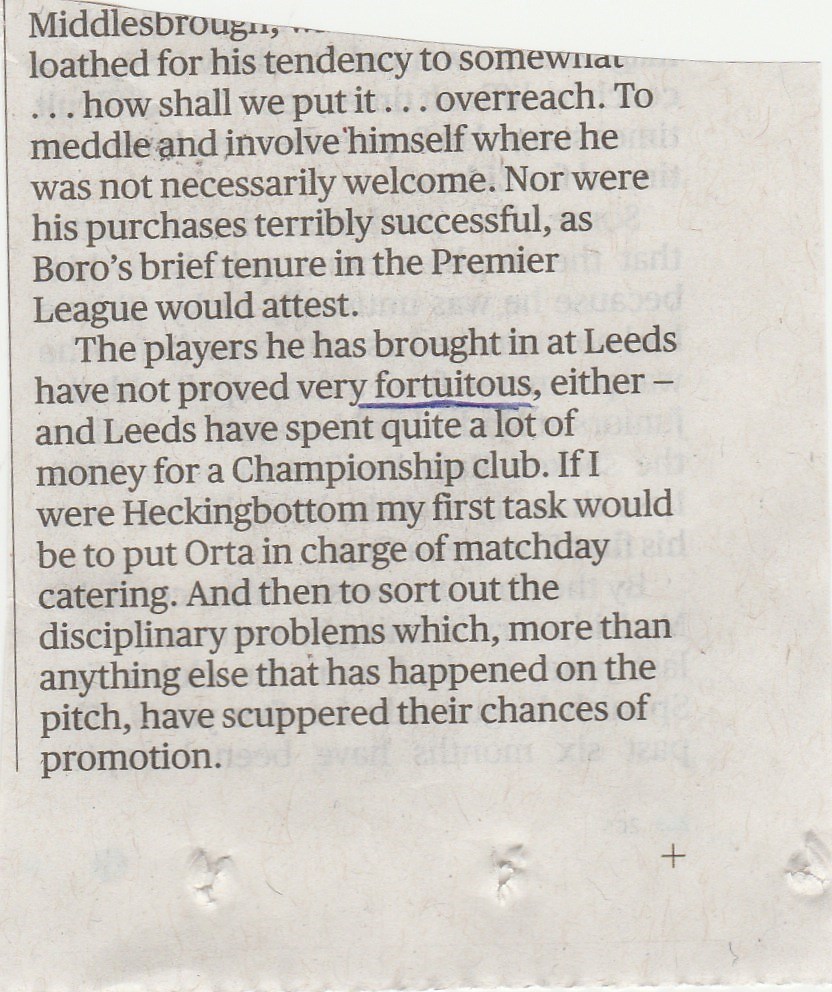 Sunday Times, February 11, 2018
Sunday Times, February 11, 2018
‘Fortuitous’ means ‘happening by chance’ and is applied to events or situations. For example, ‘it was a fortuitous meeting’. Technically it does not suggest whether the chance was a good thing or a bad thing, but nowadays it tends to be used in a ‘good’ context. Either way, obviously it cannot be applied to a person or a group of people. I’m at a loss to think what word was wanted here. ‘Effective’, maybe? It is yet another example of someone thinking a long word is smarter than a short one, and ending up looking foolish.
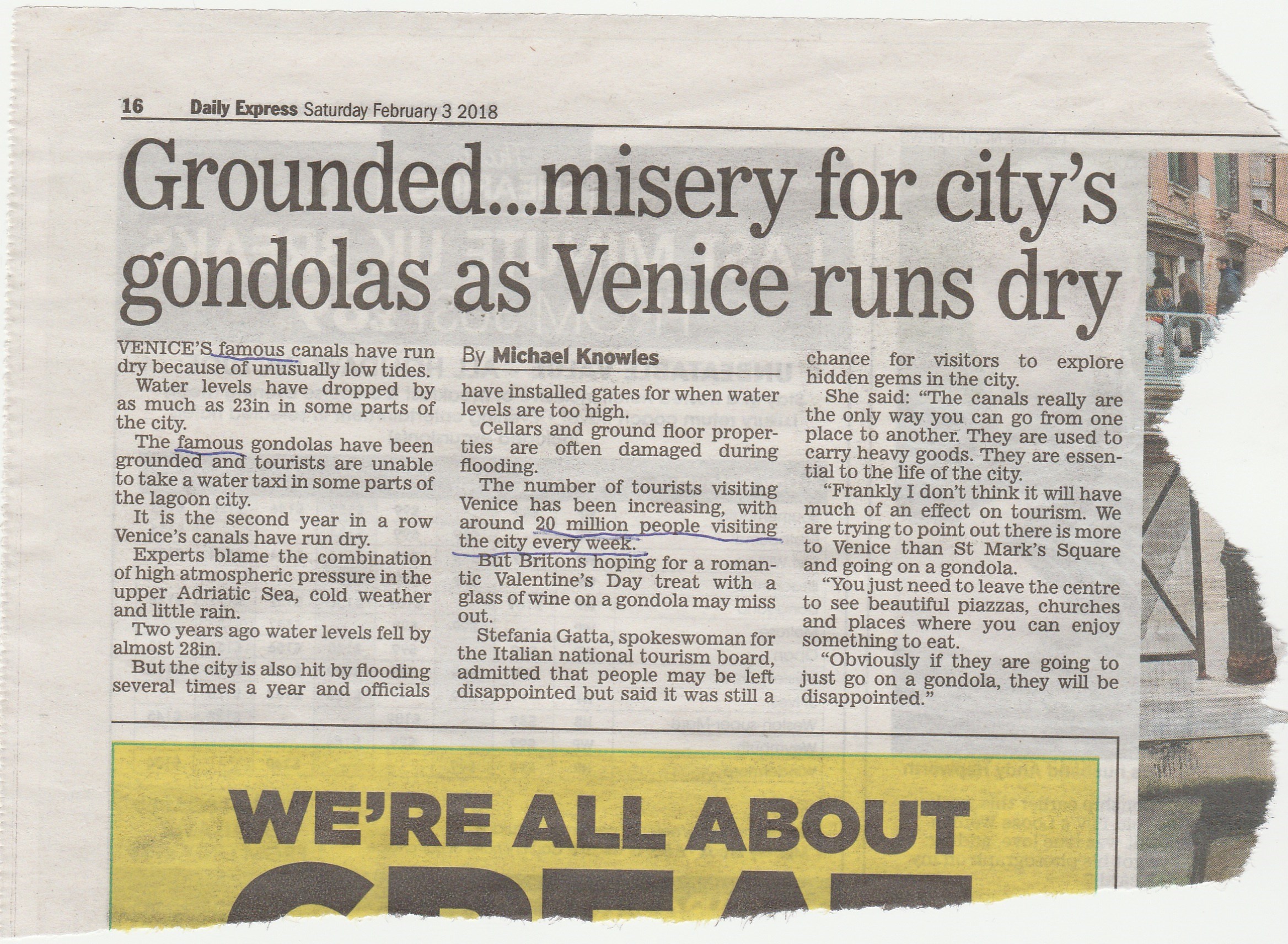 Daily Express, February 3, 2017
Daily Express, February 3, 2017
It’s hard to know where to start with this, but let’s go for the statement in the middle leg that Venice is visited by 20million people a week. This is about a third of the population of the UK. A nano-second’s thought would have made it clear that this is ridiculous. To be a sub or a writer, there has to be a modicum of connection between the brain and the fingers on the keyboard. Whoever put this through is an idiot, plain and simple. As a matter of interest, 20million is the estimated number of tourists a year to Venice.
How about ‘famous’ appearing in the first and third paragraphs? If something is famous, you don’t need to say so, and if it isn’t famous, then the description is wrong. I thought everyone on newspapers knew this.
What about the heading? ‘Misery for gondolas’? As if a boat were capable of emotion. Stupid, stupid, stupid.
A possible heading might be:
Gondolas grounded as
Venice’s canals run dry

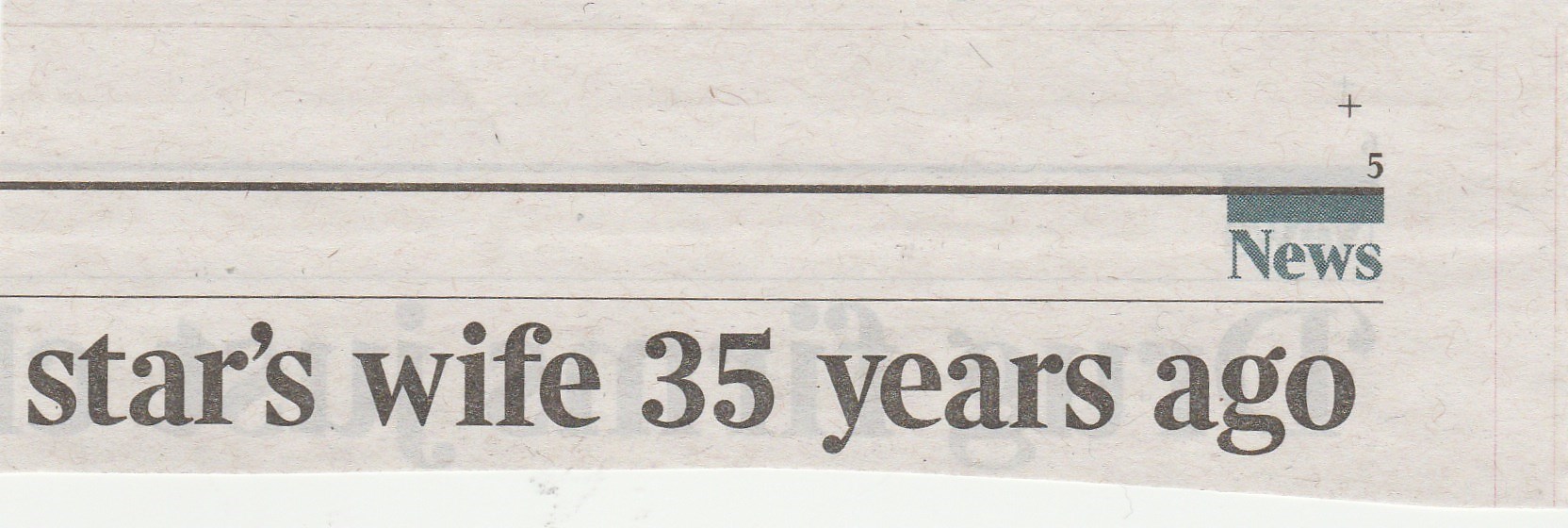
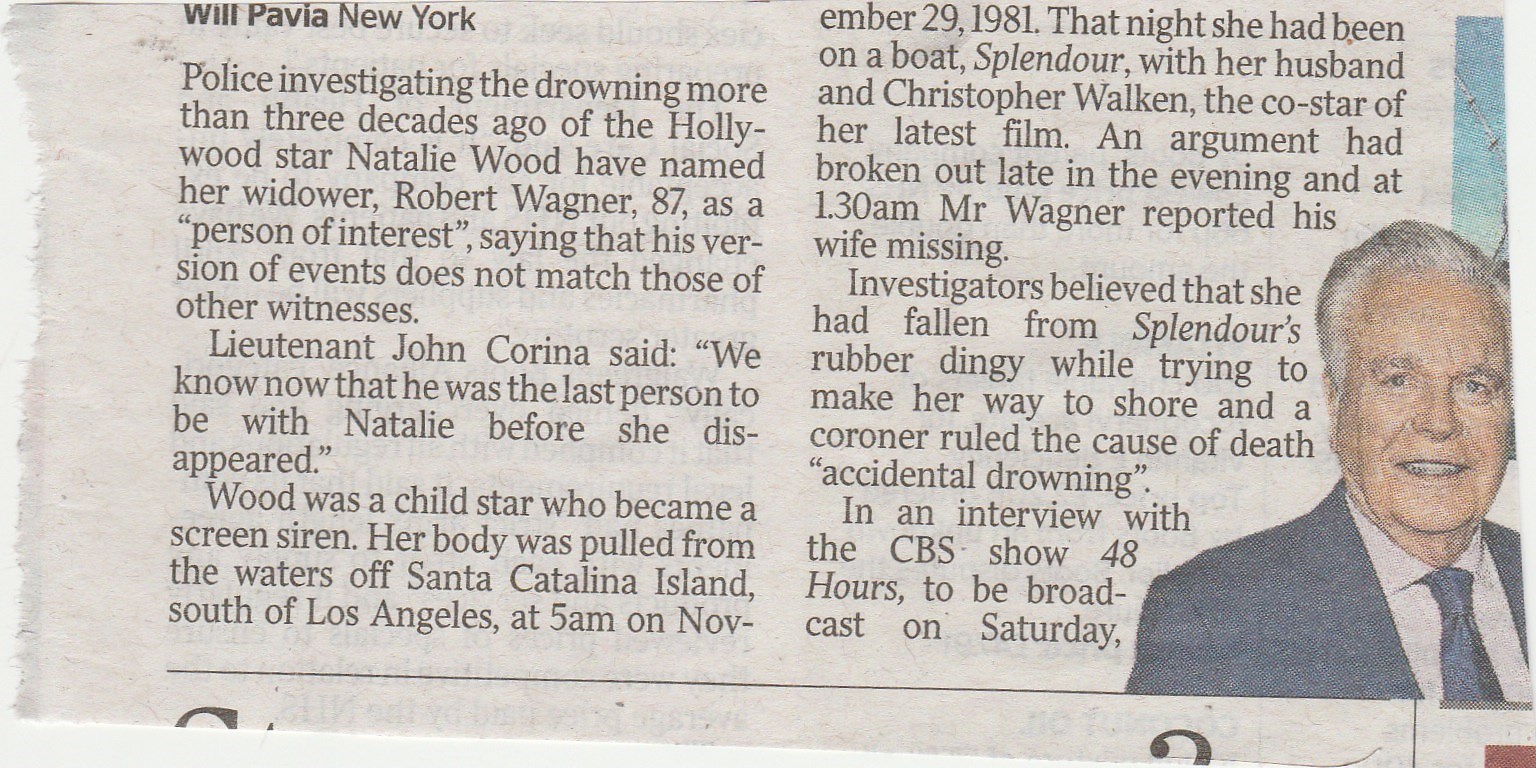 The Times, February 2, 2018
The Times, February 2, 2018
I believe this is evidence of the problem facing most newspapers, namely that their staffs tend to be (cheap) young people who lack background knowledge of culture, history and much else, but their readership is mainly quite a bit older. Thus, most Times readers will know about the death of Natalie Wood, but it looks to me as if the headline was written by someone who had never heard of her. She was, after all, a star in her own right, not just a ‘film star’s wife’, and her death has been a mystery ever since it happened. This heading could have been written any day in the intervening 35 years. The i newspaper showed how it should be done:
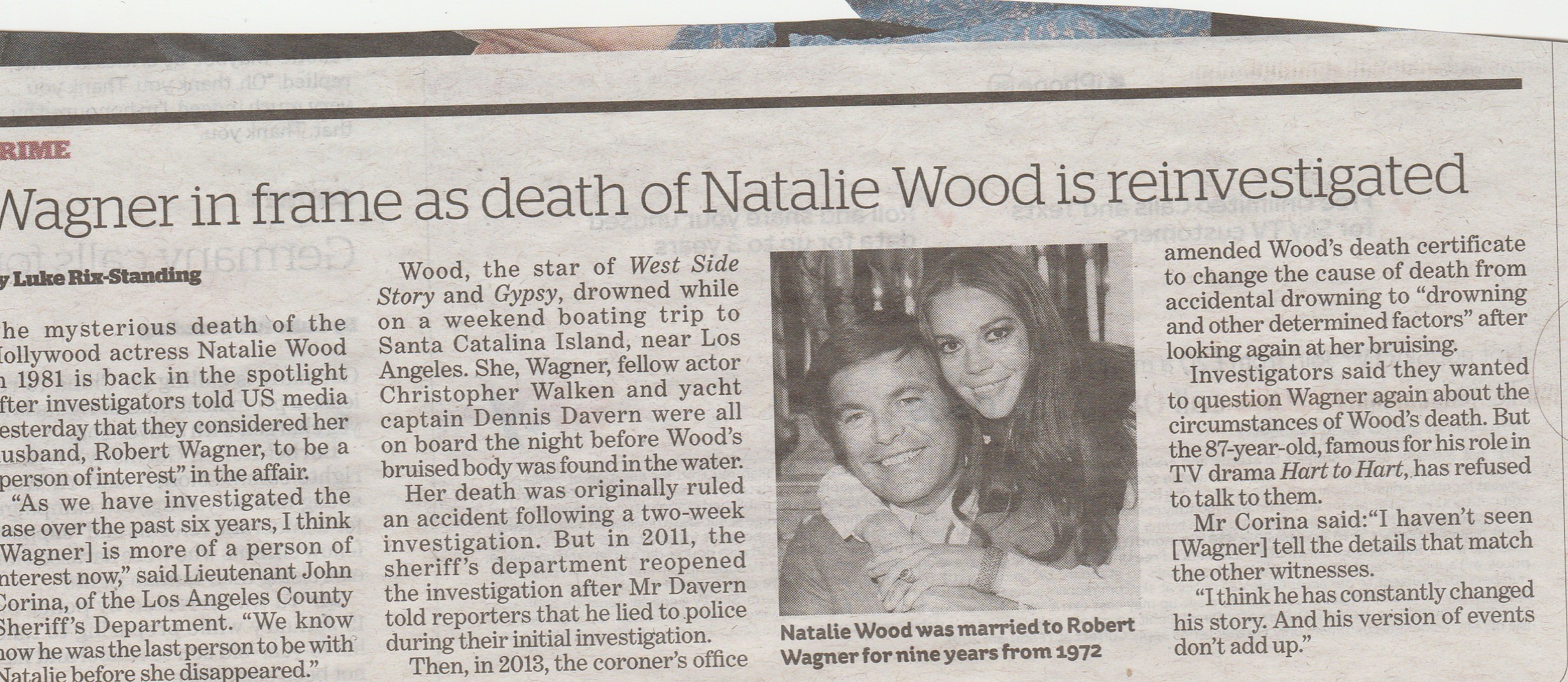
i newspaper, February 2, 2018
The names of Wagner and Wood are so well known to the readers that they must appear in the heading. The use of ‘in the frame’ is good, with its double reference to films and suspicion.
Message from the Lost Cause Department: When I started subbing, there was a range of ages on the table from beginners to those who were on the brink of retirement, and a range of backgrounds from tea boy upwards. This structure has been demolished and now most staff are comparatively recent graduates, with inevitably limited experience of the world. Donald Rumsfeld was mocked when he pointed out that there are ‘known unknowns’ (things you know you don’t know) and ‘unknown unknowns’ (things you don’t realise you don’t know), but he was right, and the latter are the ones that cause the trouble. Of course a young person won’t know everything, and that is the advantage of having older people around to guide and help. But they are more expensive, and that is all that seems to matter.
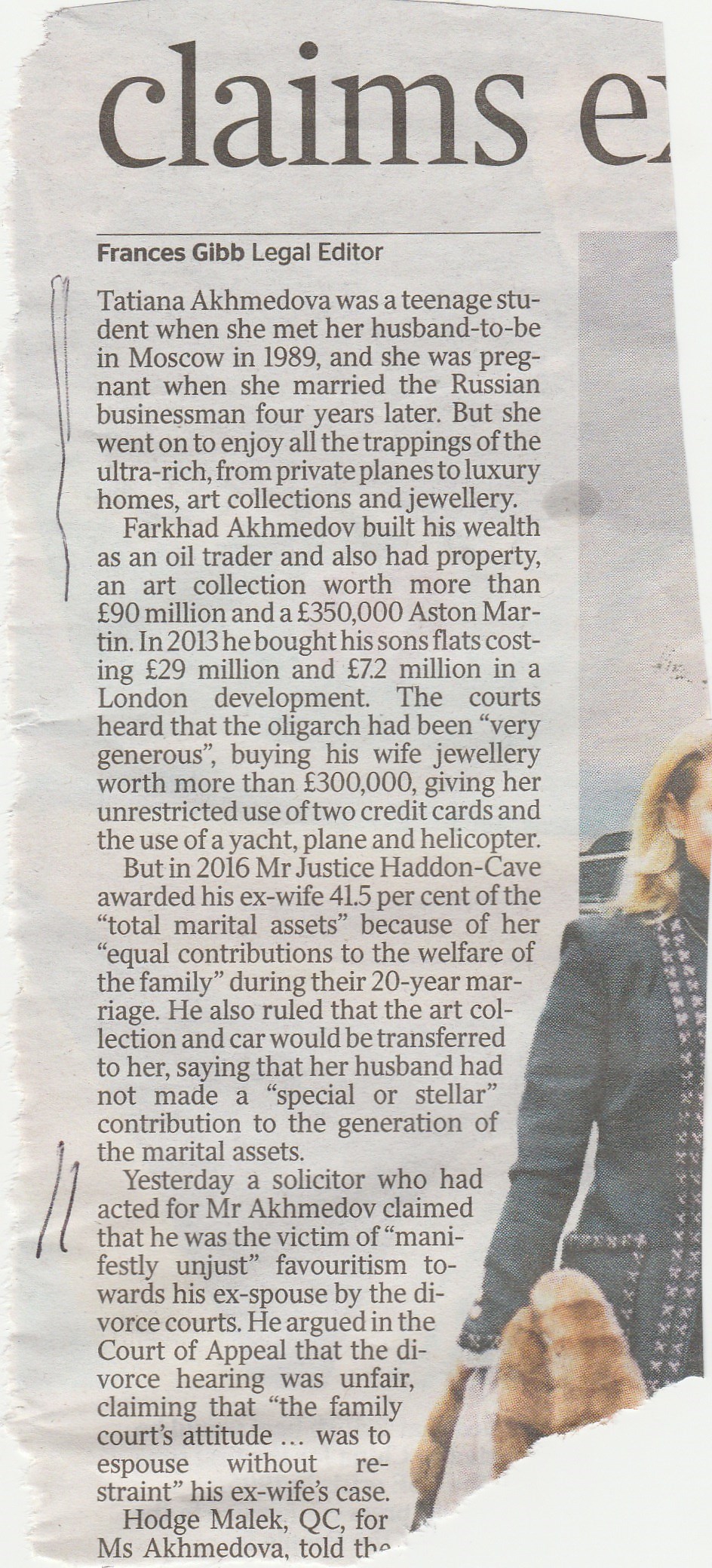 The Times, February 1, 2018
The Times, February 1, 2018
You have to be very careful with the conjunction ‘but’. It means that what follows is unexpected. So this intro suggests that it is surprising if a woman who met her husband-to-be when she was a teenager, or one who was pregnant when she married, goes on to achieve a wealthy lifestyle. Beginning the third paragraph begin with ‘but’ suggests that the wife did not deserve the award, when that is not for the Times to say – it is the subject of the hearing being reported.
In any case this is a terrible way to tackle the story. It is near-criminal to have three long paragraphs of background before getting to the ‘yesterday’ line.
However there are obviously some pros at the Daily Express, who showed how it should be done:
 Daily Express, February 1, 2018
Daily Express, February 1, 2018
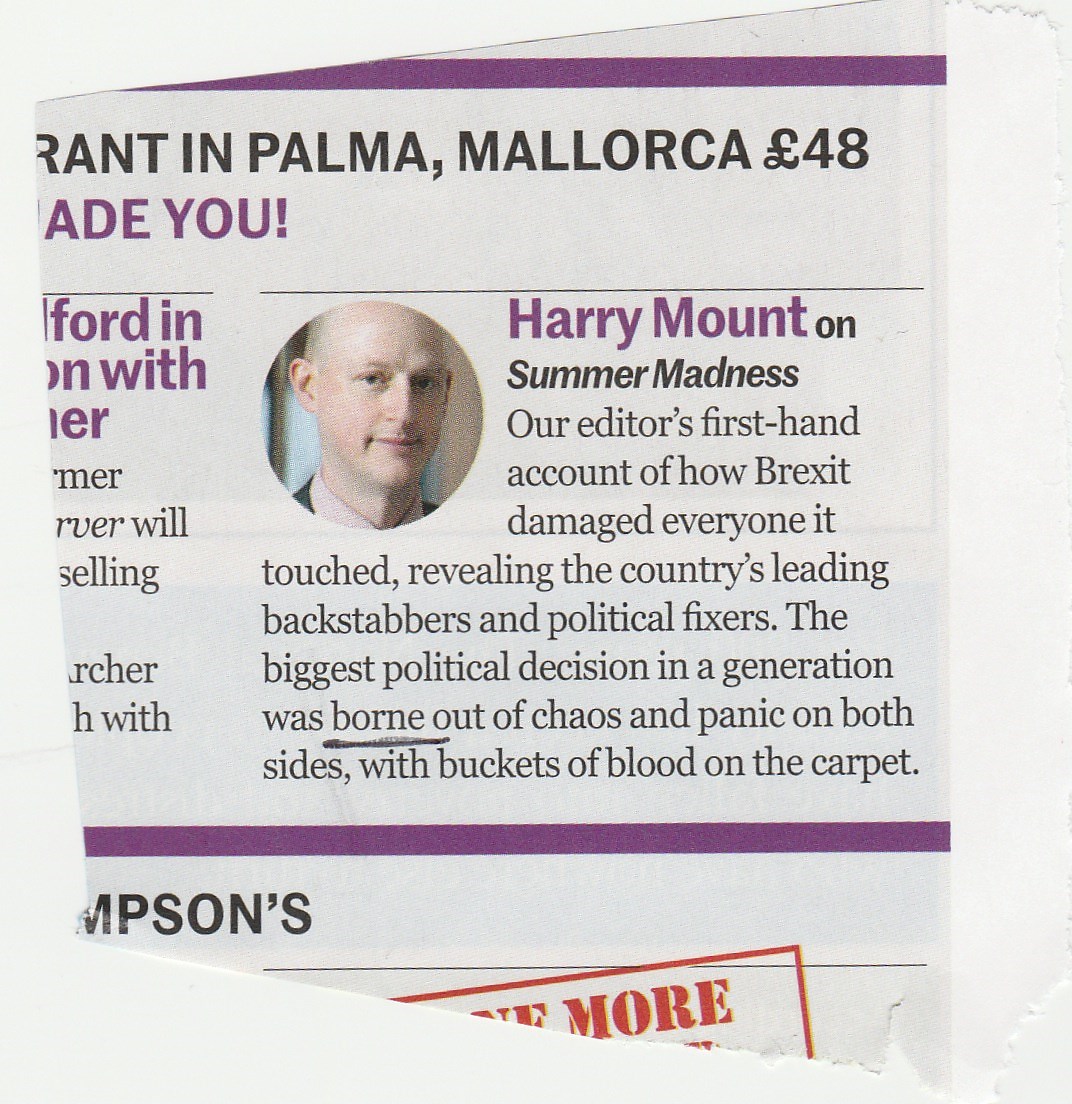 The Oldie, March 28, 2018
The Oldie, March 28, 2018
‘Borne’ means carried, as in ‘water-borne’. The word wanted here is ‘born’, to do with birth.
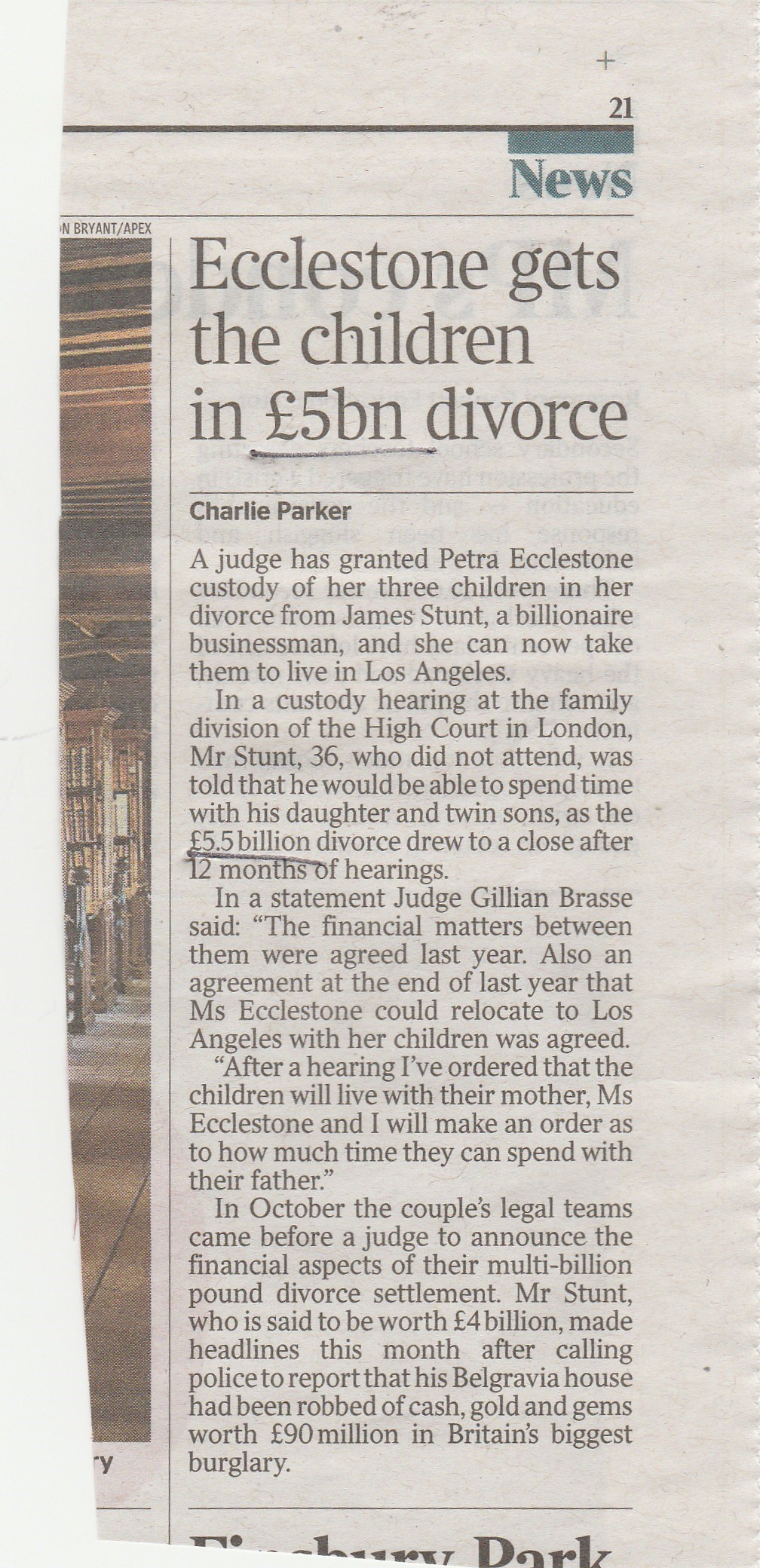 The Times, January 31, 2018
The Times, January 31, 2018
What exactly is a £5billion (or £5.5billion – obviously the odd £500million doesn’t matter much at the Times) divorce? It’s meaningless in this form. In fact it refers to the couple’s joint fortune, which has been split between them. I would have put in that Ms Ecclestone’s father is the Formula One tycoon Bernie, since presumably he is the main source of her cash.
 The Times, January 31, 2017
The Times, January 31, 2017
‘Special’ and ‘specially’ are among the words I most often take out of copy. Surely it goes without saying that if surgeons are using headsets they will not be toys or ones designed for metal detecting? Of course they are specific to the task. Another example which often comes up involves ‘specially trained marksmen’ or similar, as if any passer-by might be asked to do a spot of shooting.
In the second leg, ‘inside’ does not take ‘of’. It should be ‘see inside it’. The same applies to ‘outside’.
 The Times, January 30, 2017
The Times, January 30, 2017
I must have spent a fair portion of my time as a sub deleting the word ‘speaking’. Unless he wrote down his words (in which case you would say that), or used semaphore, he is obviously speaking. All you need is ‘the former England captain admitted at a glitzy ticker-tape launch . . .’
This error often shows up as ‘Speaking last night/outside his home, he said . . . ‘ Any time you find yourself writing ‘speaking’, check that it is necessary – it rarely is.
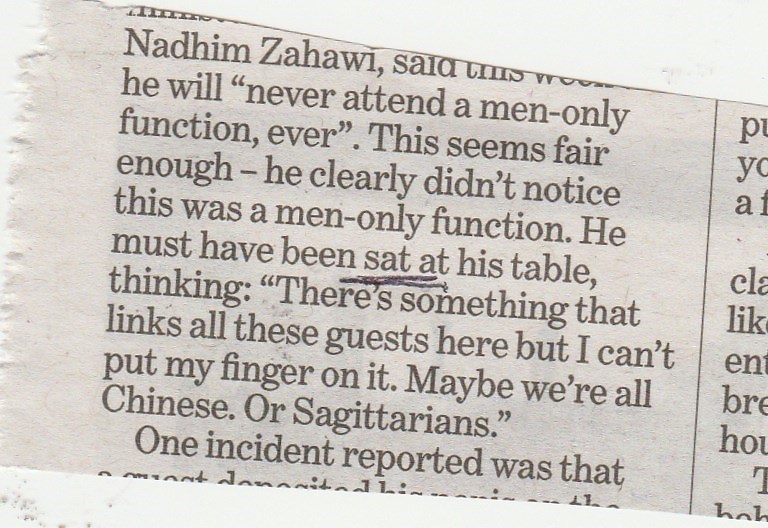 i newspaper, January 26, 2017
i newspaper, January 26, 2017
This is a commonly seen construction but it is shockingly ignorant. The explanation is quite technical but I will have a go. Continuous verb forms are constructed with the present participle (-ing form), not the past participle (-ed form). So you would write ‘she was knitting a jumper’, not ‘she was knitted a jumper’. ‘Sit’ is one of the many verbs in which the past participle varies from the ‘-ed’ form (in this case it is ‘sat’), but it is just as bad to put ‘he was sat’ as ‘she was knitted’.
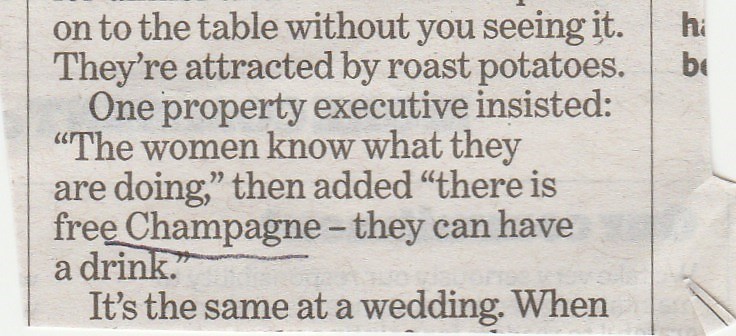
This is from the same piece in the i newspaper. There are different views on whether or not to cap champagne. I feel that you would cap the area but not the drink. So ‘the best fizzy wine comes from Champagne’, but ‘I think champagne is overrated’.